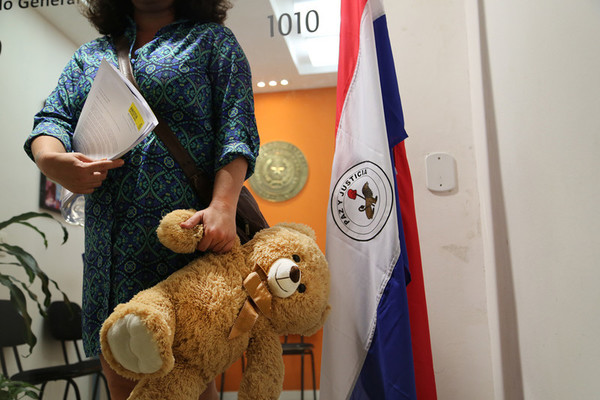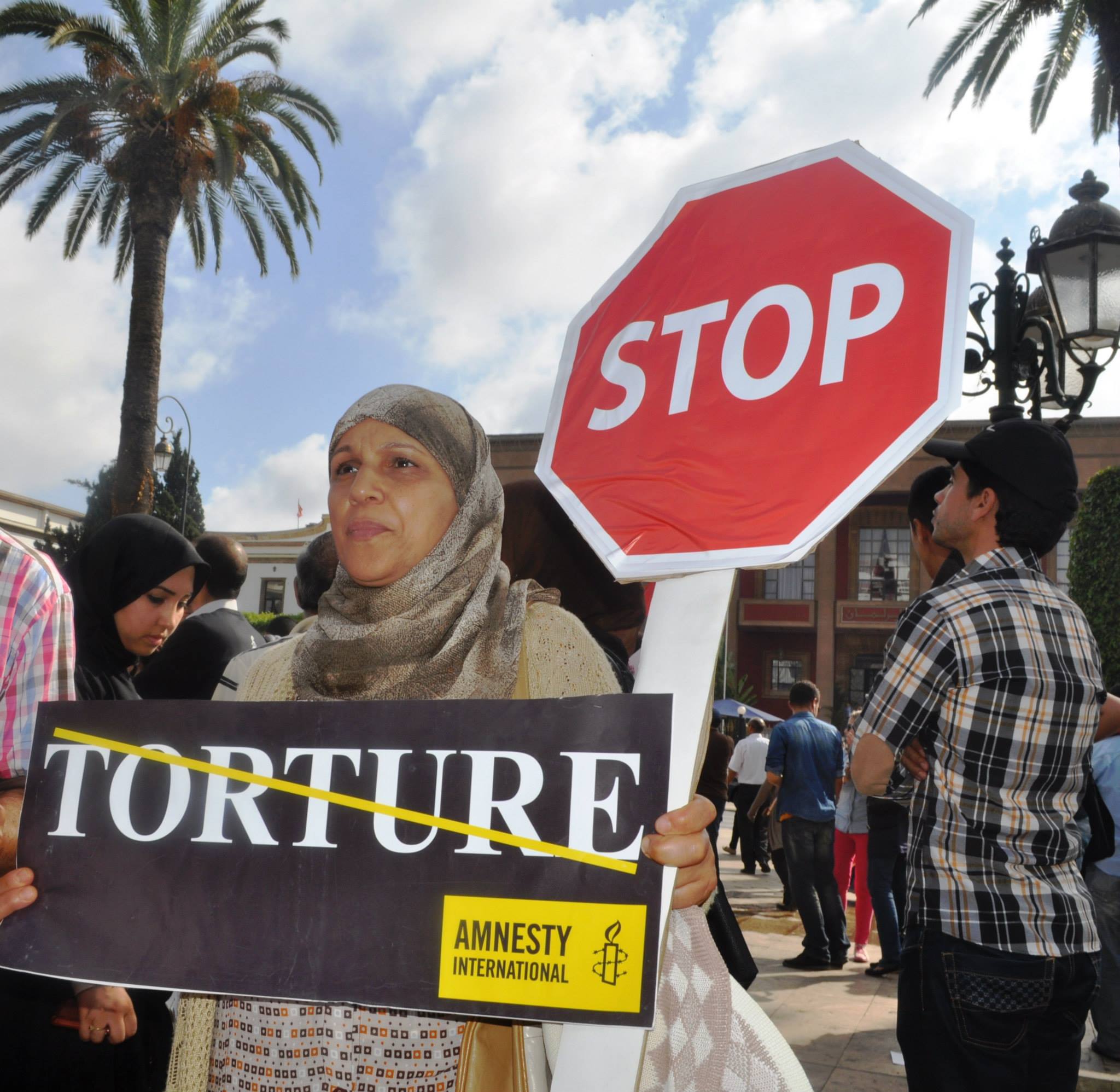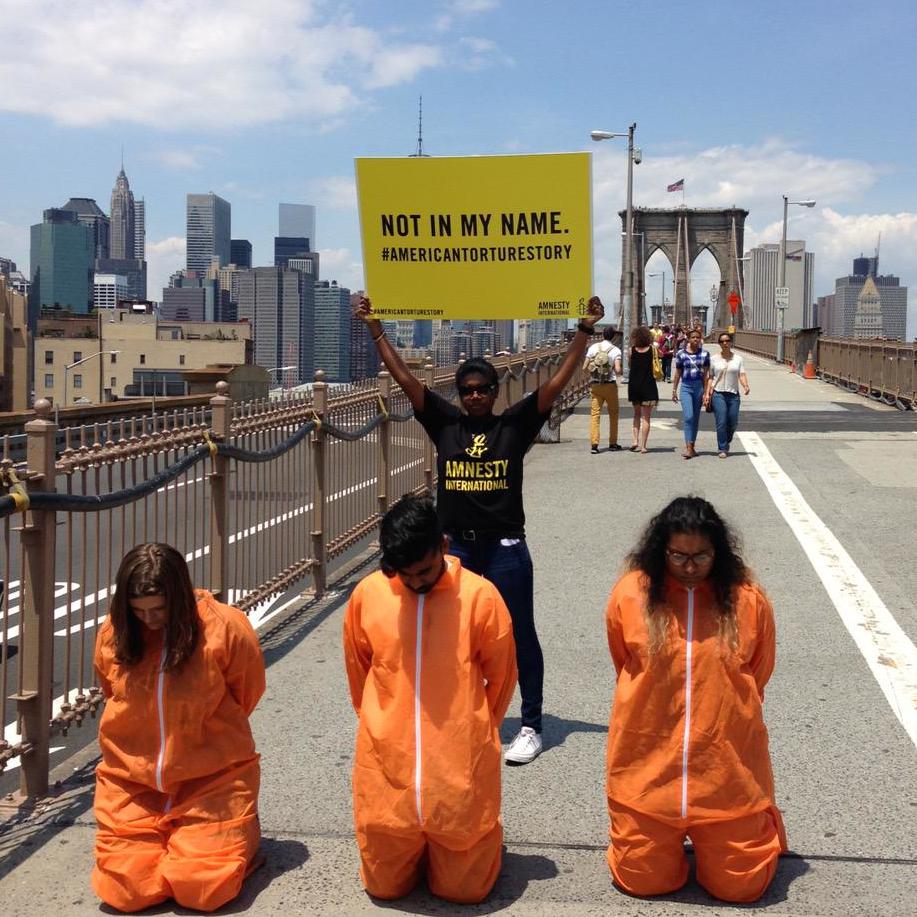
Jandira Queiroz, activism and mobilization advisor at AI Brazil at the Paraguayan consulate, Rio de Janeiro, delivering signatures for pregnant 10-year-old girs case. (Photo Credit: Anistia Internacional Brasil)
By Erika Guevara-Rosas, Americas Director at Amnesty International
It was a situation almost too heart-wrenching to comprehend. In April this year came the news from Paraguay that “Mainumby” (not her real name) then a 10-year-old girl, had become pregnant after she was repeatedly raped, allegedly by her stepfather. The girl had been taken to hospital several times in a four-month-period before the pregnancy was discovered.
After finding out the horrific news, Mainumby’s mother, whose legal complaint against her daughter’s abuser had fallen on deaf ears, made a request to the authorities to allow her daughter to have an abortion. But the government refused it, and instead moved the girl into a home for young mothers.
The reason? Paraguay, like many other countries in Latin America, has some of the world’s most restrictive abortion laws – where terminating a pregnancy is only allowed if the life of the pregnant woman is at risk. Authorities decided this case did not fall under the exception, despite the risk that a pregnancy poses to such a young girl’s physical and mental health.



 I see this poster every day in the main hallway of our Amnesty International office: it depicts the Statue of Liberty and reads: “The America I believe in leads the world on human rights.”
I see this poster every day in the main hallway of our Amnesty International office: it depicts the Statue of Liberty and reads: “The America I believe in leads the world on human rights.”


 On Sunday,
On Sunday,